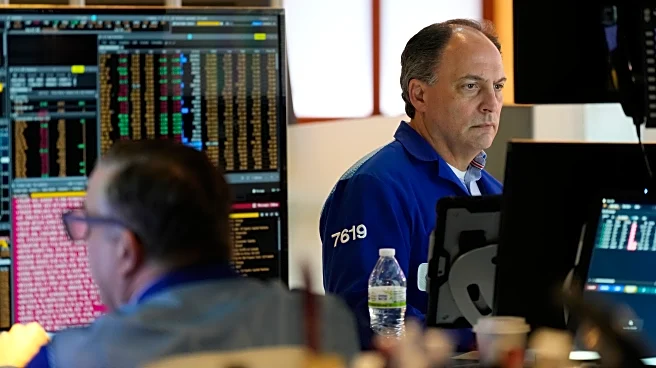Rapid Read • 8 min read
BMW has introduced the 2025 M5 Touring, a hybrid performance wagon that combines a 4.4-liter twin-turbo V-8 engine with an electric motor, producing a total of 717 horsepower and 738 pound-feet of torque. The vehicle features a 14.8-kilowatt-hour battery pack, offering an all-electric driving range of 25 miles. Despite its impressive power and handling, the M5 Touring has received mixed reviews due to its substantial weight and firm ride quality. The car's design includes steel springs and adaptive dampers, which contribute to its handling but result in a less comfortable ride on rough roads.
AD
The introduction of the 2025 BMW M5 Touring marks a significant development in the automotive industry, showcasing the integration of hybrid technology in high-performance vehicles. This model reflects the growing trend towards electrification in the luxury car segment, aiming to balance power with efficiency. However, the firm ride quality and complex drive modes may deter some potential buyers, highlighting the challenges manufacturers face in meeting consumer expectations for comfort and performance. The M5 Touring's hybrid system also raises questions about the future of gas-guzzling vehicles in an increasingly eco-conscious market.
BMW's launch of the M5 Touring may prompt competitors to accelerate their own hybrid and electric vehicle offerings, potentially leading to more innovation in the performance car market. As consumers and regulators push for greener alternatives, BMW and other manufacturers might need to refine their hybrid systems to improve ride comfort and efficiency. Additionally, the reception of the M5 Touring could influence BMW's future design and engineering decisions, particularly in balancing performance with sustainability.
The M5 Touring's hybrid system, subject to a Gas Guzzler tax, highlights the ongoing tension between performance and environmental responsibility in the automotive industry. This model may spark discussions about the ethical implications of producing high-powered vehicles that still consume significant amounts of fuel. Furthermore, the car's unique design and hybrid capabilities could influence cultural perceptions of luxury and performance, potentially shifting consumer priorities towards more sustainable options.
AD
More Stories You Might Enjoy











